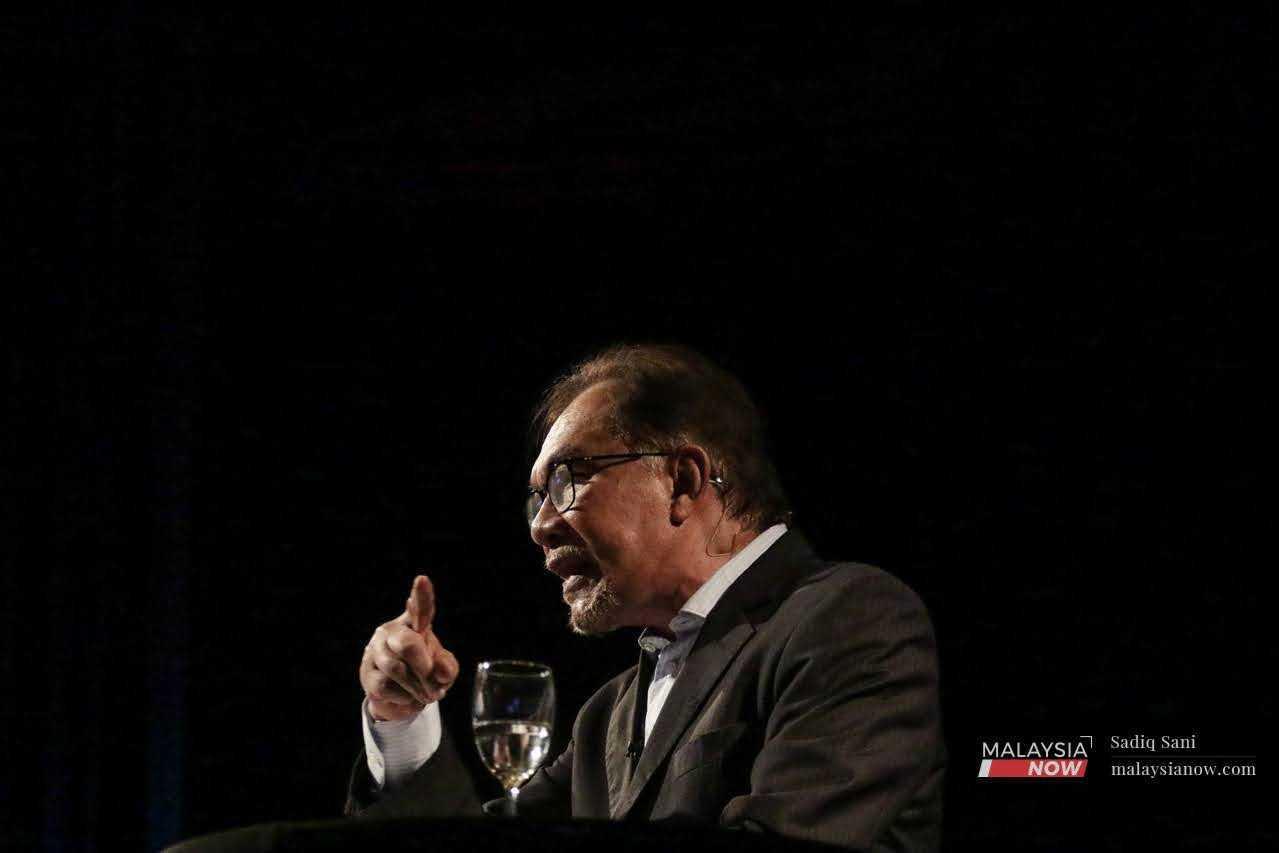Grim outlook for economic growth or reforms under 'weak' Anwar, says UK-based report
It is another negative appraisal of the prime minister as he marks his first year in Putrajaya.
Just In
An economist has painted a grim outlook for Malaysia's economic growth under the leadership of Anwar Ibrahim, saying the prime minister's need for political survival through his alliance with a scandal-ridden Umno has led to "very limited progress" in his promises of reforms.
Gareth Leather, a senior analyst with London-based economic and financial consultancy Capital Economics, also forecast a slowdown for Malaysia's growth, and "slim" prospects of reform during Anwar's current term.
"The lack of progress on reform will hold back the country's long-term prospects, and along with a deteriorating demographic outlook – the growth rate of the country's working age population is set to slow sharply over the coming decade – is a key reason why we think trend economic growth in Malaysia will slow from around 4.5% at the moment to 3.5% by 2030," he said in a country update on Malaysia released on the eve of Anwar's first anniversary in the top office.
The forecast also came amid plummeting approval ratings for the government, according to a new opinion poll released yesterday.
Pollster Merdeka Center said only half of the respondents approved of Anwar's leadership, down from 68% when he was appointed to lead the coalition government formed in the wake of the hung parliament after the general election last year.
Much of the low opinion of the country's leadership stemmed from its handling of the economy, with overall dissatisfaction with the federal government at 48%, and some 60% saying the country was "heading in the wrong direction".
Leather in his report said there had been very low expectations of Anwar when he came to power last year, adding that the fact that his administration was still around had "exceeded the expectations of some analysts".
"Given his weak position in parliament, we don't anticipate this will change any time soon, and we remain downbeat on the country's medium-term prospects," he said.
He suggested that Pakatan Harapan's (PH) cooperation with Umno, which lost its long hold on power over corruption scandals such as the 1MDB affair, had hindered Anwar from pursuing the reforms he promised.
These include the need to address criticism over abuse of the country's Bumiputera policies, which Leather said had been at the expense of other communities in sectors such as education, finance and government.
"Anwar and his PH coalition draw support from Malaysia's sizeable Indian and Chinese minorities, and had made reform of the system a key part of their agenda. The prospect of reform during this parliament is slim."
Adding that government debt was among the highest in the region at 70% of GDP, Leather noted efforts to improve Malaysia's fiscal position such as the plans to remove food and energy subsidies as well as the passing of the Public Finance and Fiscal Responsibility Law aimed reducing budget deficit.
"However, relying on the support of Umno has made it difficult for Anwar to press ahead with the other key changes he promised on becoming prime minister."
Since coming to power, Anwar has accused opposition leaders of corruption, with many along with their associates arrested and slapped with controversial charges by the Malaysian Anti-Corruption Commission.
But Leather said there had been "little progress" on this front as well, citing the government's decision to drop charges against Anwar's deputy Ahmad Zahid Hamidi through the office of the attorney-general.
"The subsequent decision not to appeal the acquittal of former prime minister Najib Razak in a case of audit tampering related to 1MDB generated a further backlash," he added.
Anwar had overlooked decades of animosity with Umno to obtain its support for PH in the aftermath of the general election, where none of the major coalitions succeeded in gaining a simple majority.
He later branded his administration as a "unity government", promoting the "Malaysia Madani" catchphrase through use of government media.
Government supporters have defended the cooperation with Umno as a necessary compromise for the sake of political stability.
But a series of about-turns on political and economic reforms, as well as the controversial decision to stop Zahid's corruption trial, has led to increasing criticism of the coalition government.
This is coupled with the ringgit emerging as the worst-performing currency in the region, hitting its lowest value since the Asian currency crisis of the 1990s, and the outflow of RM4.2 billion from the equity market during the first half of the year.
Subscribe to our newsletter
To be updated with all the latest news and analyses daily.
